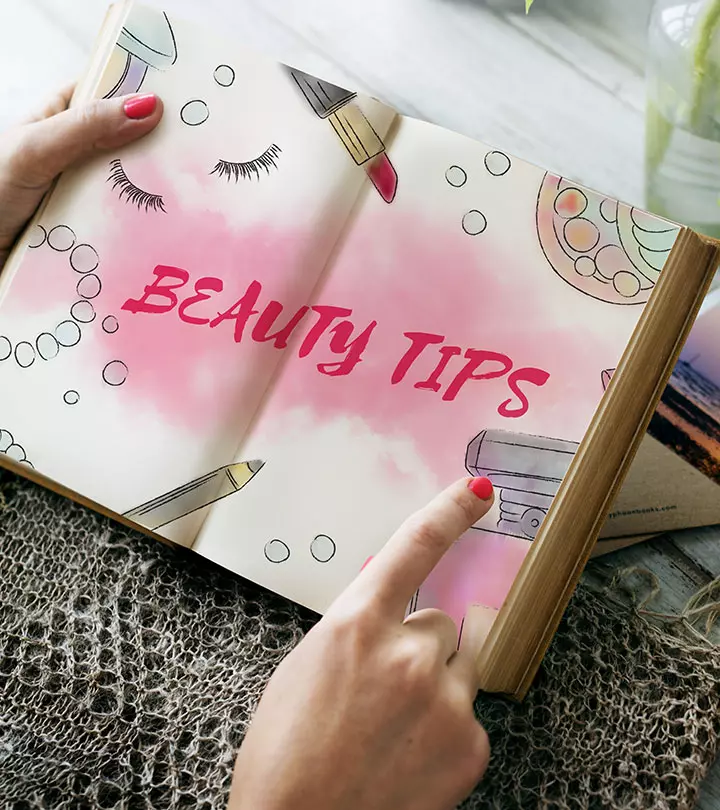How To Leave A Toxic Relationship – The Right Way To End It
Find your way out, leave a lasting impression, and move on without any bitterness

Image: Shutterstock
Your life is full of relationships and special bonds you share with your loved ones. But, sadly, some of them can be emotionally draining and unhealthy. If you want tips on how to leave a toxic relationship, we have got you covered.
This type of connection will zap all of your energy. Stress consumes you and causes frustration, anxiety, and pain. As a result, you feel you cannot progress. Unfortunately, there are toxic relationships in all walks of life. Whether at your workplace or in your family life, you are likely to face problematic relationships. When this happens, you must cope with the conflicting emotions. Leaving someone you love is hard, but sometimes it is better to let go than hold on.
An unhealthy relationship may not even be obvious to you at first. What are the signs of one, and how can you handle them? Let us guide you. Read on.
In This Article
Red Flags To Watch Out For
None of us waltz into a relationship wanting it to turn toxic. But, more often, one may not know when a relationship is turning toxic. Letting go of a toxic relationship is difficult as the victim may not be able to identify it as so. However, certain prominent signs can help. Start by asking yourself these two questions:
- “Am I comfortable in this relationship, or am I compromising my physical, mental, and emotional health to accommodate myself in this relationship?”
- “When I am with this person, do I feel anxious, scared, uncomfortable, cagey, or on high-alert?”
- If you found yourself nodding to these questions (or you hesitated to answer), you know the truth. You must now look back on the different red flags that you might have missed out earlier:
- You feel the need to be aware of how you act and what you say when you are around this person. You are very attentive of your surroundings.
- You are invested in the relationship, but the other person doesn’t reciprocate. They don’t realize what you need or feel, while you tend to each and every need of theirs.
- You are devoted to the relationship with your time, emotions, and other resources, while the other person doesn’t even put aside enough time to entertain your interests or feelings. They don’t put in any kind of interest in developing the relationship for the better.
- The other person tends to hold you back in various aspects of your life – your career, ambitions, interests, or personal growth. They don’t support you when you’re facing a challenge in any of these areas.
- You seem to have lost the independence you had before you met them. In other words, you have become dependent on them. You are losing your sense of self-worth. They make you feel small around them, and your self-confidence is diminishing.
Types Of Personalities In A Toxic Relationship
- The Perfectionist: You are never good enough for this person. They always manage to find flaws in you that aren’t even visible to yourself.
- The Controller: They want to control every aspect of your life regardless of what that may mean to you.
- The Competitor: They have to have the last word, win every argument, and prove they’re the best – even if that means sabotaging the relationship.
- The Liar: If they lie even about the slightest things, they probably never spoke any proper truth in your relationship in the first place.
- The Cheater: If they cheat on you and try to justify their actions, that’s your cue to leave.
- The Missing: They are never present in the relationship. They neither show up for common gatherings nor show interest in the relationship.
- The Manipulator: This kind of person that makes you believe things that are untrue. They work the way they want, and don’t care if you are on the same page with them.
- The Heavy Drinker: They drink through the night, do what they wish to do, and blame it on the alcohol.
- The Blamer: They always find ways to blame you for things you didn’t do, and may even demean you in front of others. This can also occur when they’re insecure and jealous of you.
- The Downer: This person brings out the negativity in things, situations, people, and surroundings. They tend to be pessimistic and don’t allow others to enjoy their time.
- The Abuser: They take out their frustrations on you, even if you haven’t caused them.
Once you identify the personality of the person you are in a toxic relationship with, it is time to leave. Wondering how? Read through the next section.
How To Leave A Toxic Relationship
Leaving a toxic relationship is not easy – and things can get further complicated when a child is involved. But to leave a toxic relationship is the right move always. Here’s how you can do it.
- Confront them: Confront the person. It’ll take a lot of courage, but talking to them is the first step on your path to recovery. Try to find out if they know what they’re doing to you, and if it is intentional or unintentional. State your concerns. Ask them if they’re ready to change, and if they aren’t, you must leave.
- Tolerate no excuses: Making excuses gives leverage to them. They know you will always put them on higher ground and will never try to change or get involved in the betterment of the relationship. Tolerate no excuses.
- Do a reality check: A reality check is important. Start believing their true nature and get out of the relationship. You need to be better for yourself, so start working on that starting now. As someone once said – face the music. If it is a terrible tune that’s playing, change it until you find the melody of your soul.
- Reduce the amount of time you give them: Make time for yourself and the people you love, the people who cherish and nurture you. If a person is not ready to make time for you, then you have more time for yourself – so why not make all your time yours? Reduce the amount of time you give to them. Stop meeting them, calling them, or giving them your attention.
- Seek help from close relations: Find your confidant. Your friends and family are always cheering for you. When you feel down, look for them and you’ll feel better. Confide in them and seek their help whenever you need it – there’s nothing wrong or embarrassing in asking for help. This may be the support you need to finally take the step to leave the relationship once and for all.
- Understand that you are the main character of your story: Your self-esteem, self-worth, and self-confidence are the most important qualities you need to believe in. What you think, feel, and believe about yourself alone must matter to you. None of others’ opinions are worth it.
- Survive: Get a job and become self-dependent. You need money to feed yourself. This means earning your own keep too. This is always where you start saving money for yourself and your future.
- Move-on: Moving on could be the most difficult part. The past may keep haunting you. But moving one could also be the best thing you could do to yourself.
Moving On
Now that we have established how you can get out of a toxic relationship, the next step involved is how you can move on. When you are used to a person’s presence, you may crave to get back to them. But it is important you don’t. The following tips can help you move on.
- Maintain no contact: Cut off any and all communication with the toxic person.
- Embrace healing: Healing is the most important aspect of your daily routine now. There’s no time limit or deadlines for healing. Take any amount of time you need to completely get over the unfortunate circumstance.
- Divert your mind in a constructive manner: Hobbies will help occupy your mind and your time. They will get you moving and increase the production of serotonin. Practice a long-lost hobby or learn something new.
- Practice self-dependency: Start depending on yourself now. You are your own person and you don’t need to rely on anyone to feel that. Becoming your better self is the turning point you need.
- Start journaling: Write down your thoughts and feelings every day, over the period of a week. You will be able to track how much you grew each day. Do this for a month, and then for a year. You will see the change you brought to yourself.
- Spend time with your confidants: Friends and family are your support system. They will help with anything you might need. You only have to ask. They can be your emotional support when you need it, your connection to the world, and your source of entertainment when you want to clear your head. Don’t shy away from them.
- Find new sources of happiness: Take a walk, dance, sing, or clean the whole house on a whim. Do whatever you need to find a new source of happiness for yourself. It is even better if the source of happiness comes from a task you accomplish on your own where you didn’t have to rely on someone else.
- Embrace change: Don’t get scared of change. It is an ever-occurring phenomenon that is the focal point of life’s process. It is an opportunity to embrace and not a hurdle to get over. Embrace change and make it what you want it to be.
- Treat yourself: Don’t shy away from treating yourself. Set a goal – start with an easy one. Treat yourself when you achieve your goal.
- Take it slow: Don’t push yourself into another relationship as soon as you get out of the previous one. Work on yourself and try to shed the baggage of the previous relationship off. Give yourself the time and space you need.
Every relationship has its highs and lows. But leaving a toxic relationship can be distressing. There are a lot of factors to consider before ending a relationship. Then, how to leave a toxic relationship? Always keep an eye on the red flags. You deserve to be happy always. Hence, do not let unhealthy relationships ruin your happiness. Do a reality check, confront the person, and tolerate no excuses while leaving a toxic relationship. In addition, do not hesitate to reach out to a mental health professional to seek advice.
Frequently Asked Questions
Why can’t I leave my toxic relationship?
Here are some of the reasons you may find it difficult to leave your toxic relationship:
• You love them.
• You believe you will be unable to find somebody better.
• You do not wish to see them with another person.
• Your family and friends adore your partner.
• You are being manipulated and are unaware of it.
What is stonewalling in a relationship?
Stonewalling refers to when a person becomes emotionally or mentally unavailable to their partner. It is when one partner literally or figuratively shuts out the other partner by refusing to communicate with them.
What is emotional neglect in a relationship?
Lack of sufficient emotional awareness and support is referred to as emotional neglect in a relationship.
Key Takeaways
- Feeling a lack of self confidence, low self worth, anxious, scared, uncomfortable, cagey, or on high-alert when around your partner is a sign that your relationship has turned toxic.
- It is essential to leave a toxic relationship by grounding yourself, doing a reality check, taking back your power by tolerating no excuses and seeking help from friends, family and the law, if required.
- Moving on from a toxic relationship may be challenging but you can do it by embracing the change, maintaining no contact with your ex and practicing self-dependence.
Read full bio of Harini Natarajan


























Community Experiences
Join the conversation and become a part of our empowering community! Share your stories, experiences, and insights to connect with other beauty, lifestyle, and health enthusiasts.